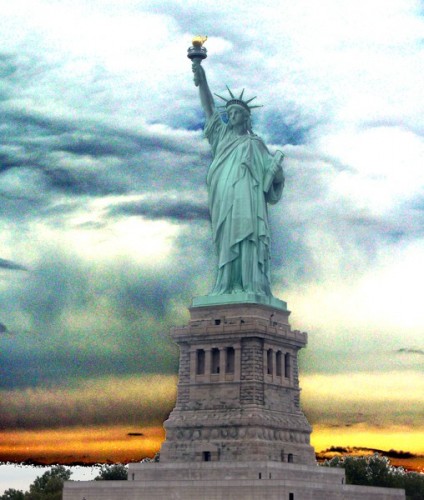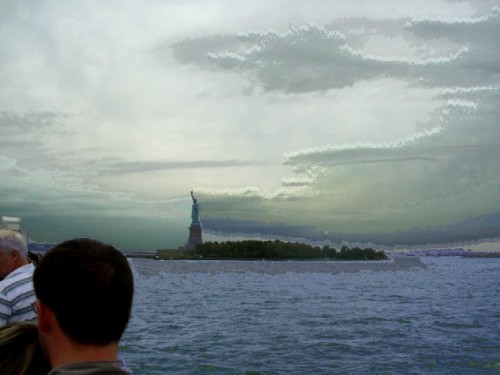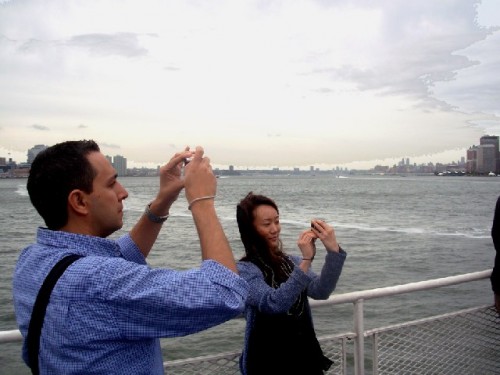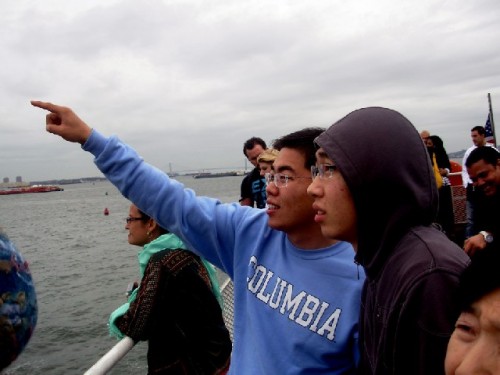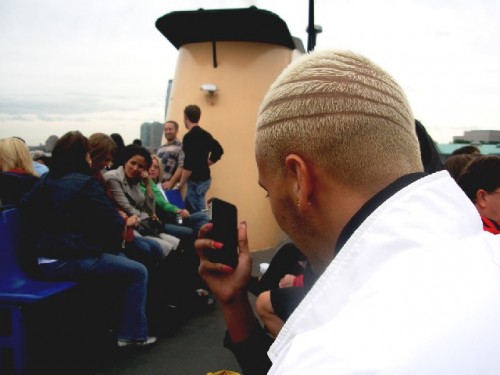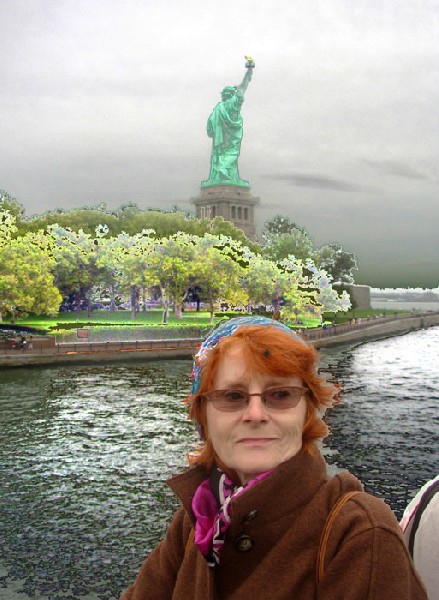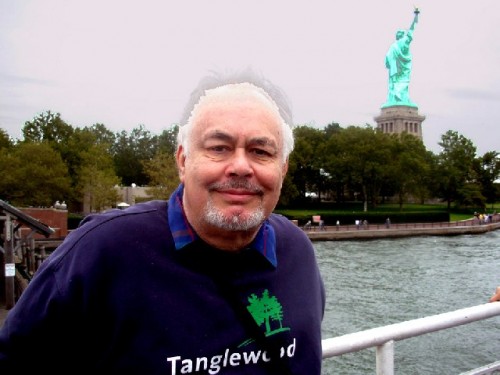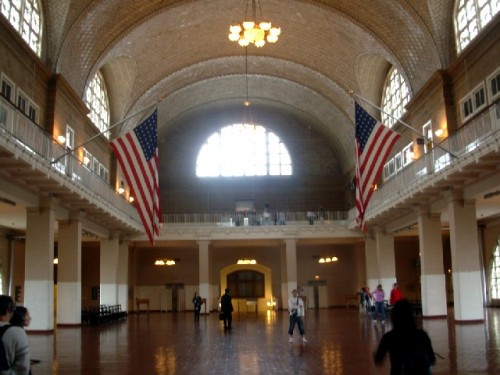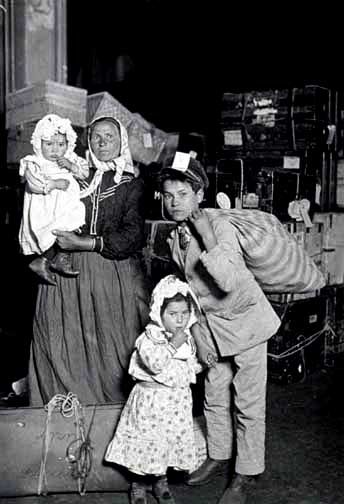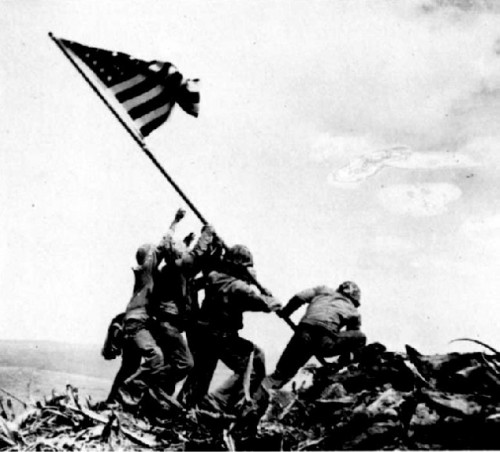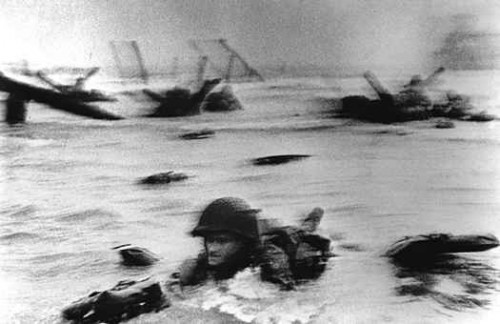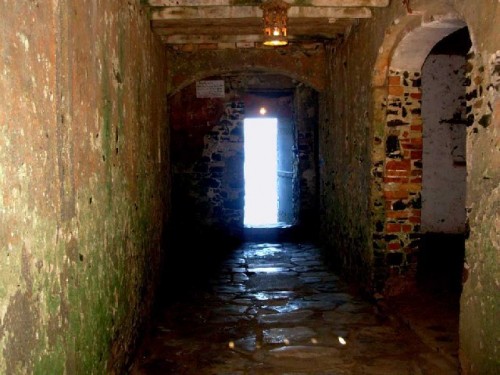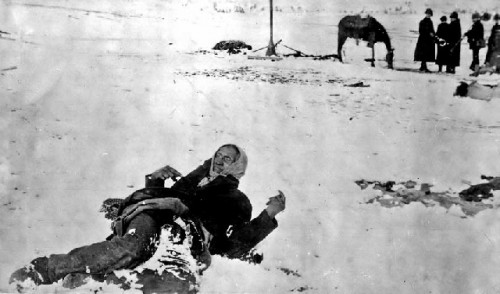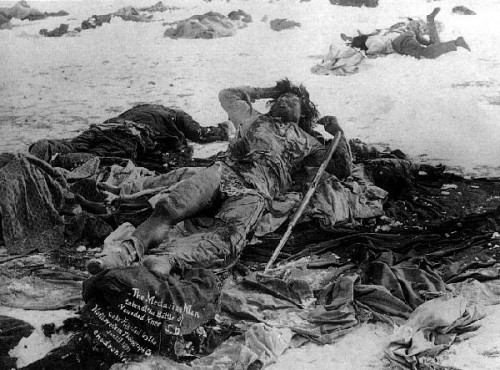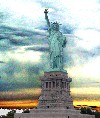Memorial Day and Liberty
Recalling Ellis Island
By: Charles Giuliano - May 25, 2009
On Memorial Day we visit family grave sites, plant flowers, and tend to gardens.
On Sixty Minutes the other night Andy Rooney recalled friends and comrades who didn't make it back from WWII. There were images of him as a young reporter as well as shots of fallen friends and a few lines of their times together, hopes and dreams that went unfulfilled.
His most memorable insight. "They say they gave their lives. But they didn't give their lives they were taken from them." He briefly talked about how Memorial Day for many people is just another day off and the official opening of the summer season.
When I was teaching it was always surprising that students were not clear on when WWII happened. Perhaps 50% got the dates right. That dropped to 25% for WWI and about five to ten percent for the Civil War. I stopped dating a serious girlfriend, some years back, when she couldn't tell me the date of the Russian Revolution. She was off by a century. It seemed important that someone I was committed to would know that it occurred in October of 1917.
Right now I am reading a moving book "Everything You Know About Indians is Wrong" by Paul Chaat Smith. I am almost finished. It's a relatively short book, under 200 pages, but I am not in a rush. There is so much to think about particularly the massacre of Wounded Knee in 1890 or the takeover of the site in 1973 as a protest led by the American Indian Movement or AIM. There were some 500 prosecutions of the leaders in several states over two years. It was a bit of a mess according to Smith but they were calling attention to the last outrage of a three hundred year long genocide of Native people.
So Memorial Day evokes mixed feelings about a complex history. WWII and the iconic image of the raising of the Flag at Iwo Jima fills us with pride in what was indeed a black and white holy war against fascism, racism and genocide. But what about the other not so noble wars? How do we feel about the fallen in wars that were imperial struggles for natural resources, trade, or outright land grabs?
Referring to the Middle Passage and slavery Malcolm X famously stated with ironic humor "We didn't land on Plymouth Rock. Plymouth Rock landed on us."
We thought about that recently during a visit to Goree Island in Senegal and the last surviving of several slave houses. There is the image of the Door of No Return from which slaves were taken to board ships. In that now placid setting there is an ironic beauty to the glimmering ocean seen through the door. We are moved by reflections on the stone corridor that connected the holding cells that had women on one side and men on the other.
Last year we visited Gettysburg, Pennsylvania and toured the battle field. We also watched the movie and took in the displays of artifacts. There were harrowing statistics of the fallen in that terrible battle. In the complex play of memory families on both sides are equally proud of fallen or maimed ancestors. Southerners take pride in their rebels and Confederate flags while Yankees deplore the celebration of slavery and racism at the heart of the conflict.
To dwell on those sticky points makes one "liberal" and "politically correct." But also possibly more right than wrong. An otherwise intelligent, committed Marxist, college professor and Stalinist, once almost punched me out when I brought up the atrocities of the Gulag. The argument was that a noble cause, Stalinism, required sacrifices. It was undoubtedly the belief of the pilots that slammed two planes into the Twin Towers during 9/11. They chanted "God is Great" and truly believed in the justice of their cause. As did members of the IRA blowing up a bar or café in London. Or Jack Bauer torturing a captive to extract information from a terrorist in the TV show "24."
So there are all kinds of rules and exceptions on how we apply the Common Law that came down to us through Magna Carta of 1215. Another date that most folks are not familiar with even though it separates them from the tyranny of despotic kings. But try to explain that concept to former Vice President Dick Cheney. Some demand his prosecution as a war criminal while others regard him as a patriot and defender of liberty. These get to be messy arguments particularly on Memorial Day when we prefer to note the sacrifices of those who fought for the freedom to argue and dissent. Some would say that conservatives have died so liberals can be free. But it is more likely true that there have been losses and atrocities on all points of the political compass. In that sense there is no true north. But my cause is better than your cause because I say it is.
Mostly I tried to get students to think for themselves. When we read Eli Wiesel's "Night" and discussed the Holocaust, most had already read it in high school, we also read Primo Levi's "Surviving Auschwitz" as well as Dee Brown's "Bury My Heart at Wounded Knee." I was surprised to read that Paul Chaat Smith doesn't like that book because it does not mention that any Indians survived. Also I discussed Mi Lai and the atrocity led by Lieutenant William H. Calley Jr. who was found not guilty by an Army court marshal.
We thought about a lot of this during a visit to Ellis Island and the nearby Statue of Liberty. During a tour of the Great Hall, where immigrants were processed, I recalled some family history. It seems that my grandfather, Andrea Giuliano, actually was a stow away on a freighter from Sicily and just went over the side in New York. Today we would describe him as an illegal alien as he never actually became an American citizen.
My wife, Astrid Hiemer, was born in Germany and our brother in law, Yuri Tuvim, grew up in Moscow. They have had intense dialogues over the years during family gatherings. My mother's family is Irish and I grew up with only occasional contact with our Italian relatives. So I am probably more Irish than Italian. Until you mess with me and then I am pure Sicilian.
On this Memorial Day I remember and am grateful to those who fought that we may remain free. And to honor the many young people who are in harm's way in Iraq and Afghanistan. Again, it is complicated, and I am sure they do not fully grasp the politics. But they stand tall and proud of their duty and opportunity to serve. The greatest sadness is that old men send young people to war. It is one of the greatest ironies. All we can do is put aside the arguments and support their courage and patriotism.

